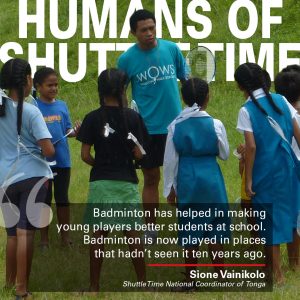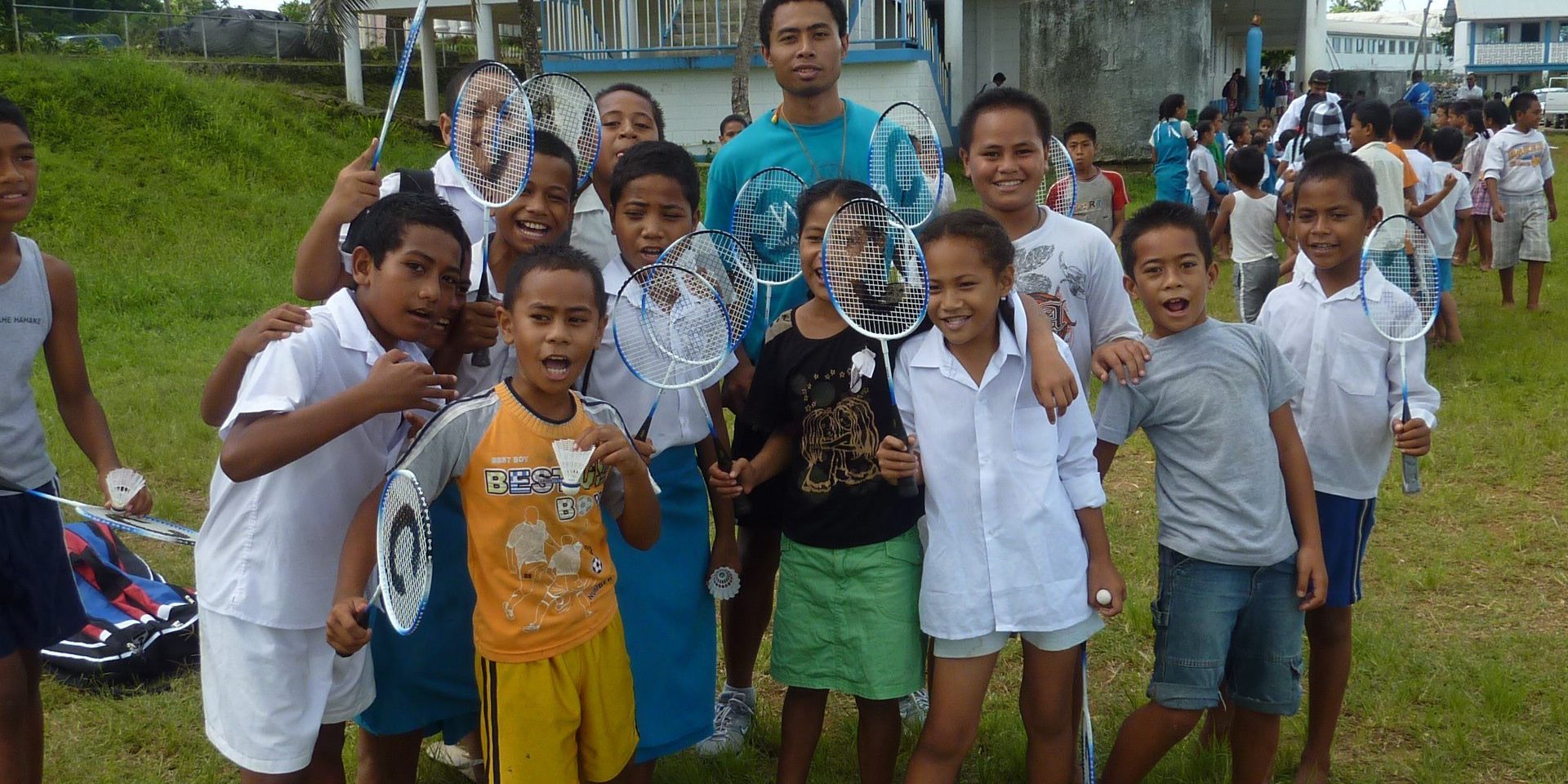Pictured: Sione Vainikolo, Tonga
The Badminton World Federation’s Humans of Shuttle Time series presents the perspectives of those who work on badminton development at the grassroots level. Sione Vainikolo, Shuttle Time National Coordinator for Tonga National Badminton Association, recounts how badminton has impacted his life on and off the court.
I grew up in an island called Vavau in Tonga. I spent my childhood mostly outdoors, playing a lot of rugby and soccer. Mom played volleyball so we had support from her. These were the only sports we knew of at the time.
The first time I saw badminton was when I finishing tertiary education. I was around 20 and it was probably late to take up the sport but I loved it. It was at an indoor stadium where the Filipino community usually played.
A year later I joined them and felt it was somewhat similar to volleyball, especially while smashing the shuttle. Later on I realised that no matter how limited our resources, I could contribute to the growth of the sport.
I believe badminton has helped me stay healthy and made me grow not only as an athlete but as a coach and coordinator.
Memorable Experiences
My fondest memories are of making new friends and helping each other through training camps, competing, completing a Level 1 course, and working on sports education in various places. This has made a huge impact on my daily life.
When I see people playing badminton in their backyards, I feel joy in knowing that this started from just a small group of Filipinos at Atele Indoor Stadium and only two Tongan boys, my brother and I.
 What Badminton Means
What Badminton Means
Badminton means a lot to me. It has made me a better person, as an athlete and coach, advocating young people to be better human beings. There is much more to learn and improve in coaching. Badminton helps me do all of this.
Challenges in Developing Badminton
Most people in Tonga were familiar only with rugby and netball; few had heard of badminton. Without indoor stadiums where badminton can be played, communities prefer other sports as the shuttle is affected by windy conditions outdoors.
It’s also hard to get committed volunteers.
Impact of Shuttle Time
Shuttle Time has contributed hugely to making Tonga more active and healthy. I’ve learnt many lessons from my involvement with badminton. One is to introduce badminton early, so that you can work with a young group that will grow up with badminton. Another is the importance of team work and patience with volunteers.
Badminton has helped in making young players better students at school. Badminton is now played in places that hadn’t seen it ten years ago.
At times you can see communities play badminton while socialising at church or even during holidays.






